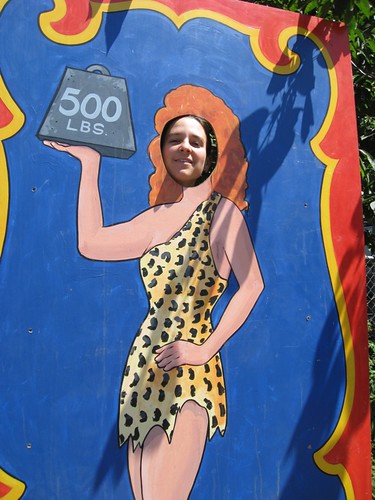Last weekend I attended Norwescon, a local convention for fans of science fiction and fantasy. It was the first time I’d been to something like this, and I had an incredible weekend.
One of the best panels I attended was on “The Heroine’s Journey.” I’ve spent the last several years thinking about stories and story structure, specifically women’s stories, so I was curious to hear what the panelists thought about the heroine’s journey.([ref] I want to make clear that I’m talking about people who are socialized as female in Western culture. I also think there is a need to include queer and trans folks in this discussion. [/ref] [ref] Panelists: Nisi Shawl (M), Susan DeFreitas, Diana Pharaoh Francis, Karen Kincy, Stina Leicht, Cassandra Clarke[/ref] [ref] Why I Hate Strong Female Characters[/ref])
They started with a discussion about the hero’s journey (aka “monomyth”), which has been well documented by Joseph Campbell and others. From there, the discussion went into how the heroine’s journey and experience differed from the hero’s. Here are the primary points I took away:
- The hero is externally focused.
- He rises to meet an external challenge or “call to adventure,” through which he proves himself.
- He returns home at the end of the story, changed and stronger than when he left.
For the heroine, these were the main themes I took away:
- The heroine is embodied. She has physical experiences that inform who she is (e.g. menstruation, pregnancy). This resonates strongly for me, but what does it mean for people who can’t menstruate/get pregnant (i.e. not limited to but definitely including queer and trans folks)?
- The heroine knows herself in relation to others. She is often defined bye her relation to others.
- The heroine is told to hide or suppress her power in order to make others (i.e. men) comfortable and/or to feel powerful (e.g. Jeannie from I Dream of Jeannie or Samantha in Bewitched.
- The heroine’s journey is generally understood to be internal, in opposition to the hero’s. Her challenge, then, is to understand and identify her power, to figure out who she is while in relation to others, and to integrate these concepts into a fully integrated whole.
In addition to these differences, I think the mono myth is problematic. It doesn’t consider that not all people have the same experience. I’m totally curious about finding other stories and structures that represent our diversity and richness as human beings.
Would love to hear your thoughts. How do these concepts resonate with your own experience? What fits? What chafes? What would it mean for a man to take the heroine’s journey? How do trans* and queer people fit with these kinds of narratives? How do socio-economic class, social standing, race, religion, country of origin, etc. challenge and/or support these narratives? What kind of narratives do you think the world is missing and what do we need more of?


